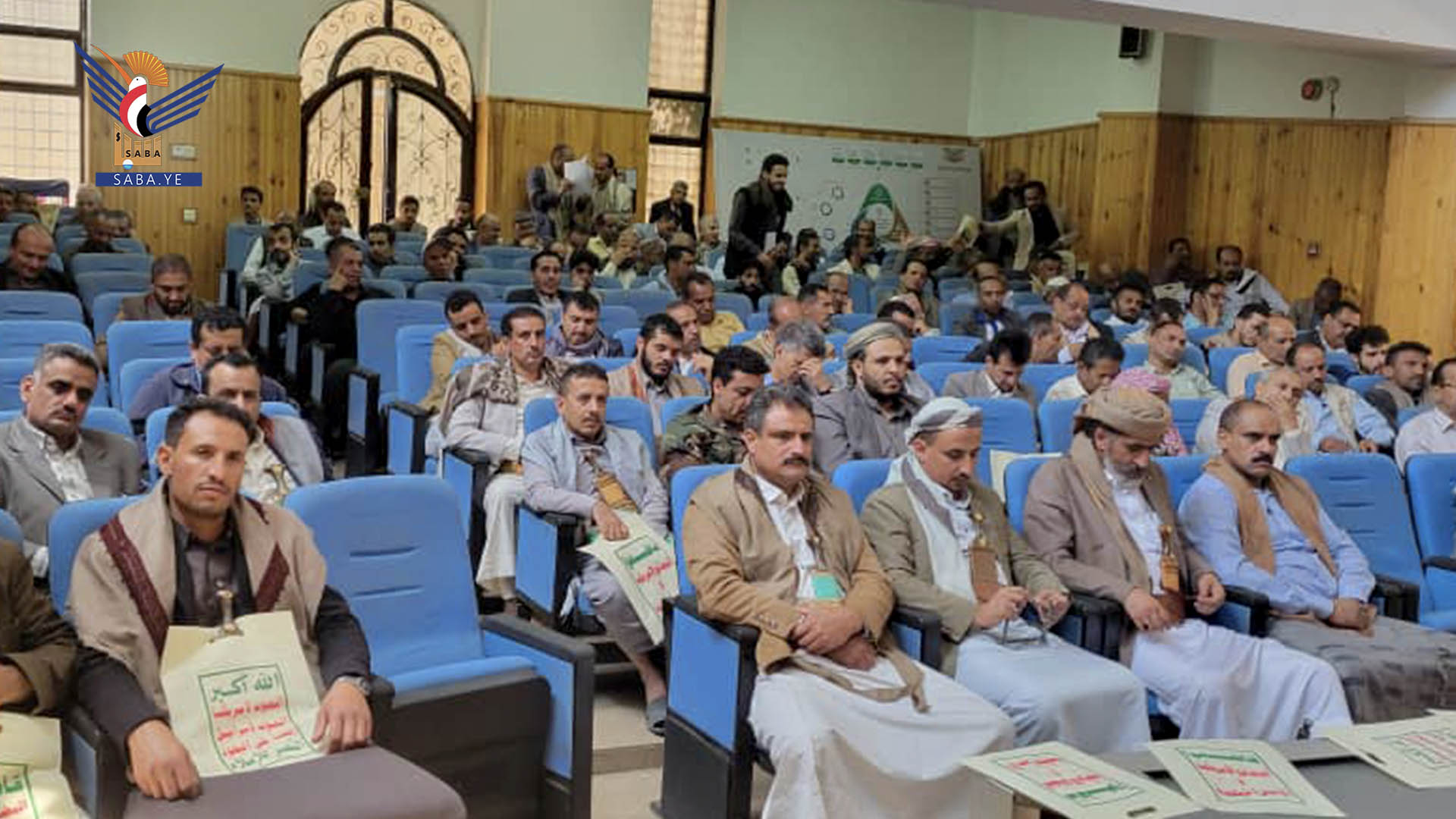Sana'a - Saba:
The Ministry of Local Administration and Rural Development organized a speech event on Monday to mark the anniversary of the "Sarkha" (The Cry) against the arrogant powers.
The event was attended by the Deputy Minister of Local Administration and Rural Development, Nasser Al-Mahdhar, and the Governor of Socotra, Hashim Al-Socotri. Scholar Fouad Naji highlighted the significance of the "Sarkha" slogan and its achievements since its launch by the martyred leader, Sayyed Hussein Badr al-Din al-Houthi.
He explained that the "Sarkha" was not merely a political tool but rather an expression of a steadfast stance aimed at protecting societies from the polarization tactics employed by global powers.
Scholar Naji emphasized that the "Sarkha" carries clear meanings and principles, rejecting domination , subjugation, and has now become a guiding stance for nations in confronting challenges. He noted that time has proven the importance of this slogan and its ability to bring about tangible change in the awareness of nations.
He called for promoting a culture of boycott, not as an individual choice but as a necessity that societies must adopt.
For his part, Deputy Minister Jamal Al-Alawi stated that commemorating this occasion reflects the unwavering stance against global powers seeking to control the resources of nations.
He affirmed that the slogan represents both a weapon and a stance against injustice, tyranny, and conspiracies targeting the nation, while also fostering resentment toward the enemies of the ummah and directing opposition against them.
Meanwhile, Assistant Deputy Minister Ahmed Al-Shawtari discussed the role the "Sarkha" has played since its inception in liberating nations from the dominance of colonial and global economic powers. He explained that the "Sarkha" has been and remains a motivational tool for oppressed peoples in their struggle to reclaim their rights and resist schemes aimed at exploiting resources and controlling political and economic decision-making.
He called on local authorities in provinces and districts to continue boycotting American and Israeli goods as a strategic necessity, emphasizing the need to focus on self-sufficiency and supporting local products.

| more of (Local) |




